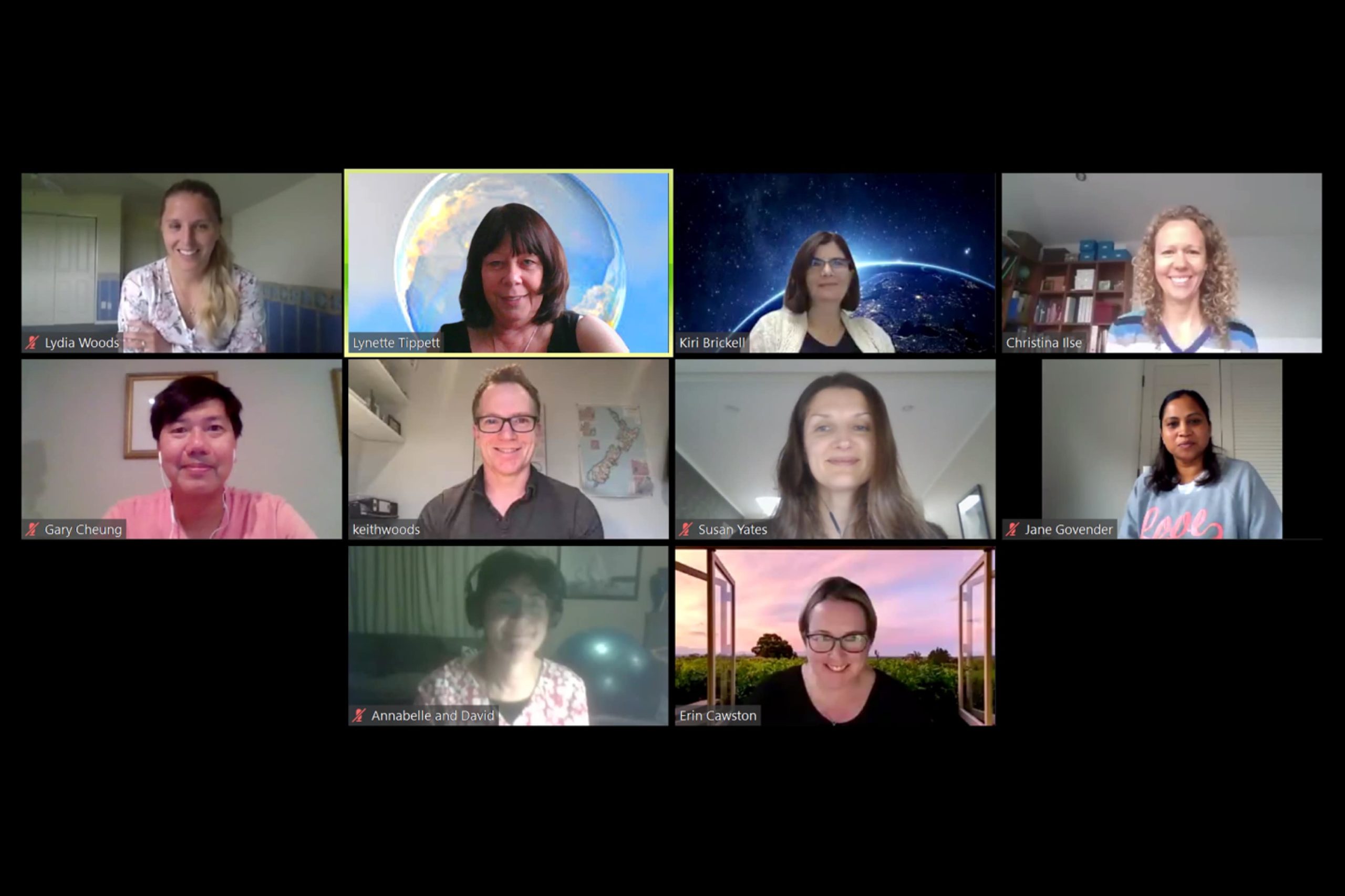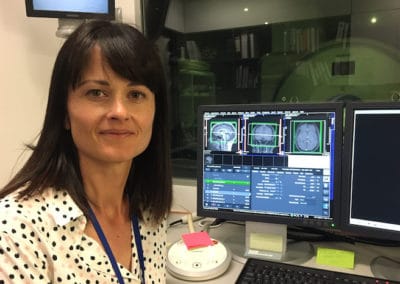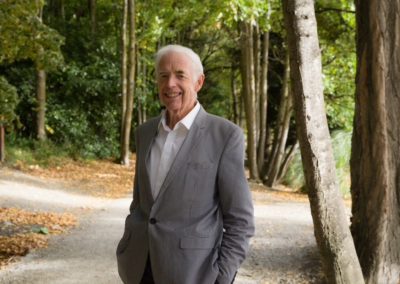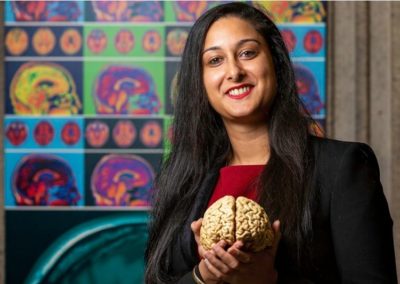While our Dementia Prevention Research Clinics are unable to see their study participants in person at the moment, our clinic staff is busy working remotely, keeping the clinic operating from their home offices and kitchen tables. We caught up with Clinical Research Coordinator Jane Govender from the Auckland Dementia Prevention Research Clinic to hear how her role changed and how she is getting on.
How has the pandemic and the lockdown changed your work?
Jane Govender: I am currently working remotely from home. As a family of four, we have to be creative in our functioning. And while it took some time to adjust to this new situation, we seem to have found our own routine. We maintain our wellbeing by supporting each other with individual and family interests, adding some splashes of colour to our days with Aroha.
In regards to the Dementia Prevention Research Clinic in Auckland, we are currently not able to see participants, but we continue to operate – in different ways. I keep up to date with email and work with our team to keep our study participants updated in the best possible way. We make sure they receive all relevant information that is important to them individually, and we keep them informed on developments with the Clinic and how we will stay connected.
While some parts of my work have remained largely the same – a lot of correspondence with participants and their family members is done via email or phone – other things have changed. I have phoned all of our participants following the Level 4 lockdown, to check how they are coping. We are now doing some feedbacks and appointments that we would usually do in person via phone, Zoom or Doxy.me. The Clinic team is also trying some new platforms of communication. We are working on a “feel good” video to send out to participants and a wellness brochure. There have been changes but we’re trying to make the best of it.

I definitely need a coffee start, not just to wake me up but it also helps me to keep a routine. I switch on the computer while I get breakfast going and catch up with the children. Currently school is online, so I try to strike a balance with being a mum and doing my work as best as I can in these unprecedented times. Then I start my work day: I answer emails, schedule appointments; I organise clinic appointments and Zoom meetings with participants and clinicians; I make sure the clinicians have all the documents they need for their appointments; I call participants to check in on them, remind them about their appointments, or to just have a chat; the team is working on the setup of a database; I update the team; troubleshooting any queries; and I assist researchers as needed.
How do you stay motivated during these times?
I keep motivated by putting my circumstances in perspective and by trying to understand the impact of COVID 19 felt globally. I remind myself to appreciate life’s treasures; whānau and loved ones. And I focus on the participants of our study, and giving them the best support I can to help them through these difficult times.
How do you keep in touch with the rest of the team and the participants?
Our team is well connected and we keep in touch in a number of ways; from phone calls, emails and text messages, to big online team meetings on Zoom, to various messaging apps.
Similarly, we stay in touch with our participants using a number of channels to support them in the way that works best for them. In many cases, that’s via phone calls and emails, but we also communicate via text messages, video calls, WhatsApp and Facetime, and so on.
What do you most look forward to do once the crisis is over?
I look forward to regaining some freedom and being able to be out and about. I also look forward to the human aspect of my role as a nurse – seeing our participants, the face to face contact, a simple “Kia Ora” in person.
How do you think the DPRC will change going through a crisis like this?
I think we are realising that although there are some things we can not do when we don’t see participants in person, in other ways our team are just as capable working remotely as we are in person. We are still able to maintain our professional care and empathy through various methods of communication. There may be alternate options of communicating with our study participants going forward, as we now better understand technology and can effectively use this medium of communication within our clinics.
Everything will be fine – Andra tutto bene.



